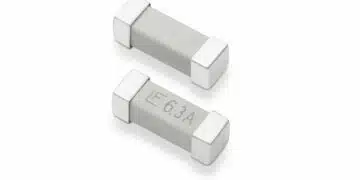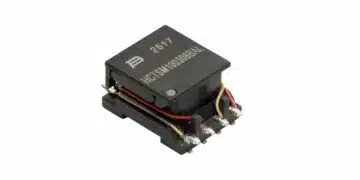source: AVX news
The new metal oxide semiconductor (MOS) capacitors deliver small, low-profile, temperature-stable solutions with high Q, high breakdown voltage, low leakage, wide capacitance, tight tolerance, & rugged construction
FOUNTAIN INN, S.C. (May 1, 2017) – AVX Corporation, a leading manufacturer and supplier of passive components and interconnect solutions, has released new MS Series metal oxide semiconductor (MOS) capacitors for applications in the RF, microwave, and gigahertz ranges. Designed for DC to 20GHz operation in hybrid circuits, bias networks, receiver optical subassemblies (ROSA), transmission optical subassemblies (TOSA), and aerospace and test and measurement equipment, MS Series MOS single-layer capacitors use silicon dioxide (SiO2) dielectric materials to deliver small, low-profile, temperature-stable solutions with high Q, high breakdown voltage, and low leakage. The series also offers a wide capacitance range (1 – 1,000pF), tight capacitance tolerances down to ±0.1pF, and rugged construction.
“Built to provide rugged, reliable solutions for applications in the DC to 20GHz range, the new MS Series MOS capacitors are fabricated with unique processing procedures and material sets to achieve high Q, excellent temperature stability, high dielectric strength, high insulation resistance, and low ESR,” said Larry Eisenberger, principal technical marketing engineer at AVX.
Measuring 0.01 – 0.07 inches square and 5 – 10mils (0.127 – 0.250mm) thick with a ±1mil (0.025mm) size tolerance, MS Series MOS capacitors are currently available in seven standard case sizes, four standard working voltages (25, 50, 100, and 200V), and, to ease assembly, a wide range of termination styles for epoxy or solder die attach and subsequent gold (Au) or aluminum (Al) wire thermosonic and ultrasonic bonding; although, custom applications and designs are welcome.
MS Series MOS capacitors may be shipped in waffle pack, as tested whole wafers, or as tested wafers diced on film frame. Lead-time for the series is eight weeks.
































